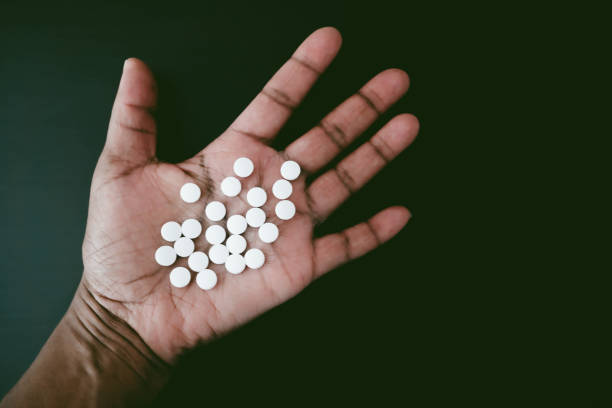You are here: Home / BM / President Joe Biden Should Make Non-Opioids Available to Address Spikes in Blacks’ Overdose Rates.
Like
Like
Love
Haha
Wow
Sad
Angry
1
(ThyBlackMan.com) Every seven minutes. That’s how often we lose someone to a fatal opioid overdose. Opioids killed over 80,000 Americans in 2021 alone, and the nationwide trend shows Black communities are suffering more from the opioid addiction crisis than any other racial group. Unfortunately, a new pain treatment policy that would protect more Americans from the harm of addiction is not slated to go into effect until 2025. That puts tens of millions of patients at unnecessary risk for opioid addiction. Those who undergo outpatient surgery in a system that defaults to opioids for acute pain despite CDC guidance although non-opioid therapies are just as effective. To prevent addiction before it starts, the Centers for Medicare and Medicaid Services (CMS) should accelerate policy to make non-opioids available for pain management without delay.
The costs of the opioid addiction crisis are unacceptable and unsustainable. In 2021, over 107,000 Americans died from an overdose — with a staggering 75% related to opioids. The year before, there were over 142 million opioid prescriptions, which is enough for more than four out of ten of our friends, family, and neighbors to consume. In the heart of the COVID-19 pandemic, Black overdose mortality increased by 44% — twice as much as for white Americans overall, and seven times greater for older Black men than older white men. This is, in part, because of deep-seated disparities in access to medications for opioid-use disorder and telehealth access barriers. It’s also because the COVID-19 pandemic caused abrupt clinic and pharmacy closures in our communities, preventing Black Americans from receiving appropriate care and options to manage their pain.
To create meaningful change, we must understand that behind these statistics there are personal stories. They are grandparents who suffered a fall and required surgery. They are teenagers who underwent a routine wisdom teeth removal. They are even those recovering from addiction, still without the option of a non-opioid after surgery. Outdated federal policy has traditionally put them all in danger. We must not allow another year to go by, with more families torn apart and more Black Americans victim to both limited options for pain, and the persistent health care gaps which make it harder for them to battle addiction once it starts.
In a big step forward in the fight against opioid addiction, Congress passed the NOPAIN Act at the end of 2022 to expand access to FDA-approved non-opioid therapies in the outpatient surgical setting. The law will expand access and creates choices, but will do nothing to curtail access to pain management options. The policy allows decisions about pain management to stay where they belong — between medical experts and their patients.
Unfortunately, the policy does not go into effect until 2025.
Each day without the NOPAIN Act in effect means more lives lost. The number of outpatient surgical procedures has grown steadily over the past quarter century with nearly 20 million procedures in 2018 alone. Because of the 2025 delay, tens of millions more will unnecessarily undergo outpatient surgery without expanded access to non-addictive, potentially life-saving pain therapies.
Across both sides of the aisle, lawmakers agreed that we must address the opioid addiction crisis upstream. I urge CMS to turn that legislative progress into regulatory action to protect Americans of all backgrounds from the fatal consequences of opioid addiction. My message is simple: Implement the NOPAIN Act as soon as possible.
Overdose deaths are preventable. But clearly the past two decades — with over half a million lives lost to opioid-related overdoses alone — have shown that we are not doing enough. CMS must step in and expand access to non-opioids as soon as possible. Anything short of that means Americans, especially those in Black communities, will continue to suffer through avoidable battles with opioid addiction.
Written by Meron Agonafer



